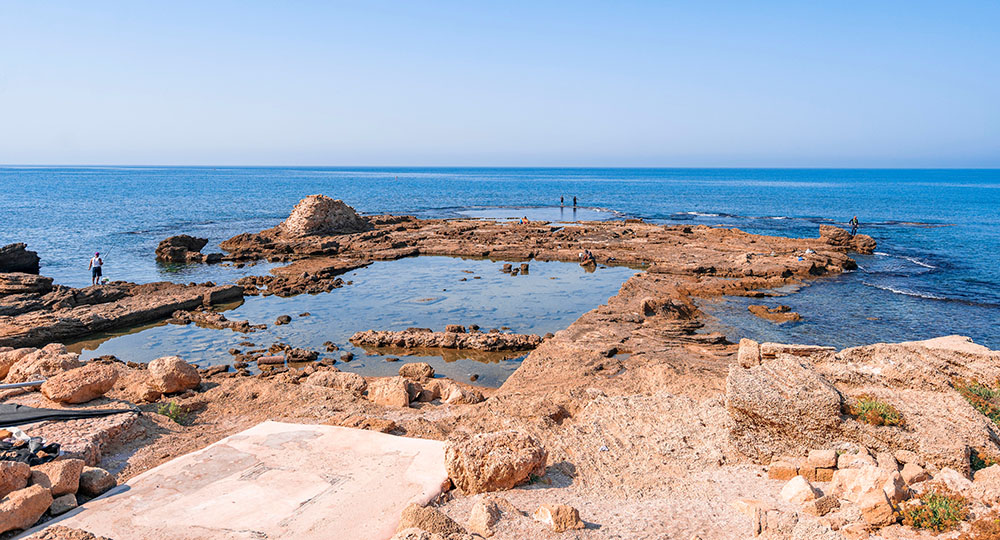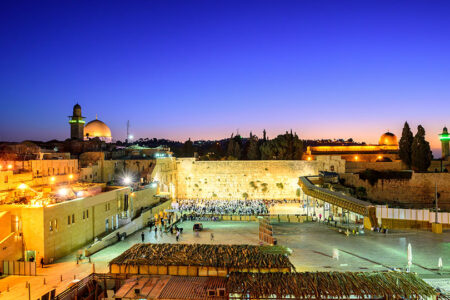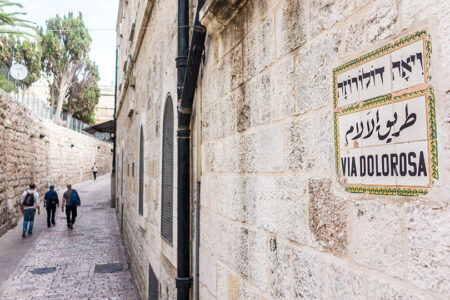Caesarea Maritime
When I lead our Up to Jerusalem tours to Israel, I enjoy seeing the excitement of those who have never seen the Holy Land. On our first full day of touring, we stop at Caesarea Maritime, a manmade marvel built in 25 BC by Herod the Great. He took a piece of coastline and turned it into the land’s major port city, naming it after Roman Emperor Caesar Augustus.
Today it is a city of ruins. However, part of the ancient port has been excavated; and the Roman theater, whose stones are a memorial to the city’s former splendor, has been partially reconstructed.
The Bible’s account of Cornelius of Caesarea, a Roman centurion, helps explain why we visit the Holy Land. Cornelius feared God, gave alms to the needy, and always prayed (Acts 10:1–2); but he needed Christ.
An angel told him to send men to Joppa to fetch Peter. So Cornelius sent two servants and a soldier (vv. 3–8). As they journeyed, Peter was praying on the roof of Simon the tanner’s house when he saw a perplexing vision. A great sheet descended with all types of ceremonially unclean creatures. The Lord told Peter to eat; but Peter replied, “Not so, Lord! For I have never eaten anything common or unclean.”
The Lord responded, “What God has cleansed you must not call common” (vv. 9–15).
This happened three times before the sheet disappeared. At that moment, Cornelius’s men arrived; and the Spirit of God told Peter to go with them, doubting nothing (vv. 16–20).
God was changing Peter’s thinking. Peter believed the gospel was for the Jewish people alone. God was showing him that, while salvation was of the Jews (Jn. 4:22), God would begin fulfilling His promise to bless all the families of the earth through Abraham’s seed (Gen. 12:3).
Consequently, Peter had a change of heart: “God has shown me that I should not call any man common or unclean” (Acts 10:28). He went with the men to Caesarea to preach the gospel to Cornelius, and many in Cornelius’s home believed and received the Holy Spirit (vv. 24–48).
Because Peter obeyed, the gospel reached the Gentiles, who became believers. And from this port city, the Good News went out to the whole world.
As believers in Jesus, we come to Israel as living memorials to the gospel that was preached to Gentiles in Acts 10. Through the gospel, we are believers in the God of Abraham, Isaac, and Jacob and are Zionists who have experienced great things through the Jewish people, to whom we are indebted. We are living testimonies to the story of Acts 10.
Photo: Adobe Stock








